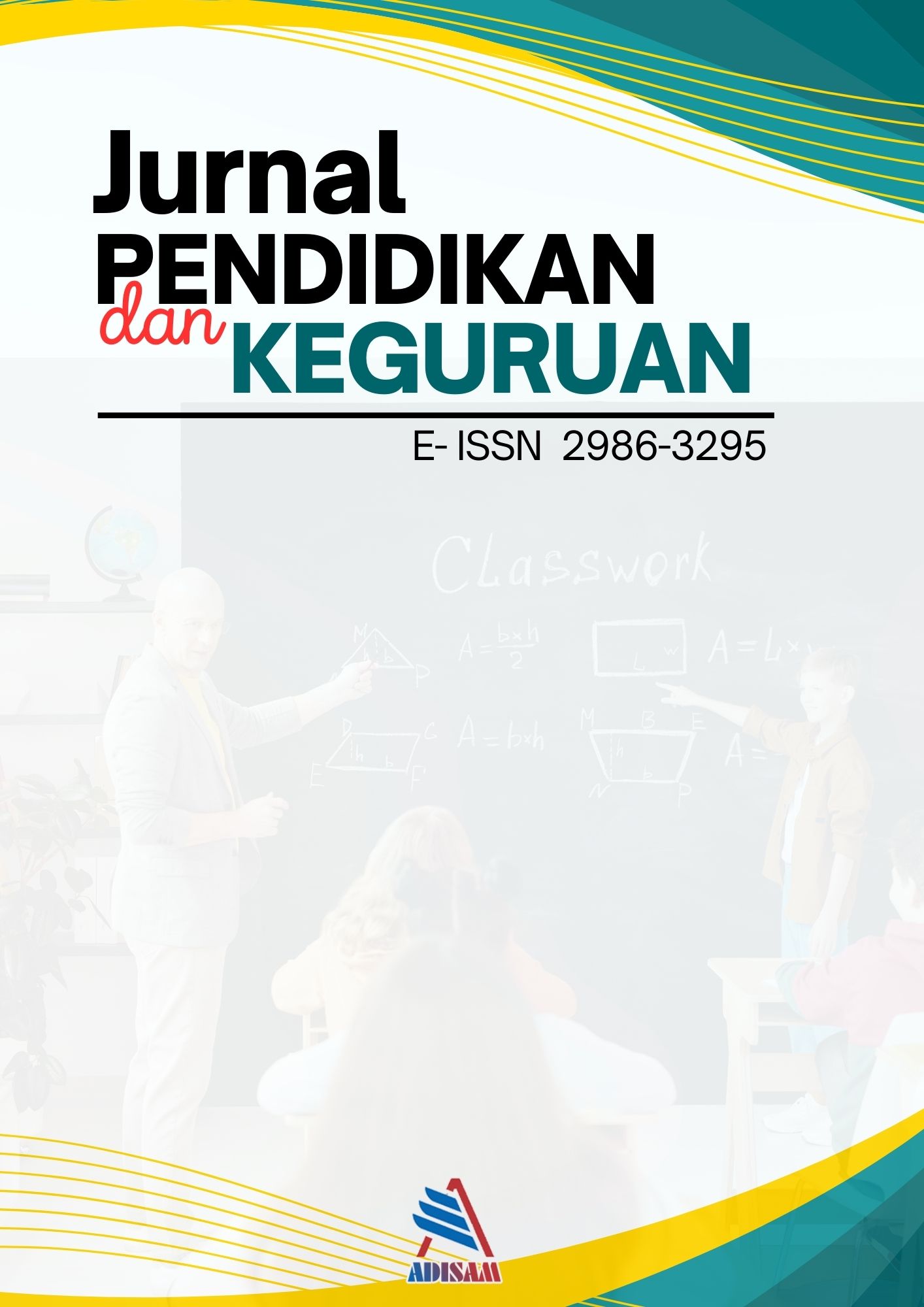PERBANDINGAN HASIL BELAJAR AL-QURAN HADITS SISWA MADRASAH ALIYAH (MA) LULUSAN MTS DAN SMP DI PONDOK PESANTREN DARUSSALAM SUMANI
Keywords:
comparison, learning outcomesAbstract
This study is motivated by the existence of inequality in the learning outcomes of Al- Quran Hadith between students who graduated from MTs and SMP. Students who graduate from MTs generally get more intensive religious education compared to junior high school graduates, so it is assumed that they will have better learning outcomes. However, preliminary data shows that the value of learning outcomes does not always match this assumption. This study aims to determine how the learning outcomes of Al-Quran Hadith subjects compare between Madrasah Aliyah (MA) students who graduated from Madrasah Tsanawiyah (MTs) and Junior High School (SMP) at Darussalam Sumani Islamic Boarding School. This study uses a quantitative approach with statistical data analysis techniques. The population in this study were all grade X students of MA Pondok Pesantren Darussalam Sumani. The results showed that there was a significant difference in the learning outcomes of Al-Quran Hadith between students who graduated from MTs and junior high schools. With the acquisition of sig value. (2 - tailed) is 0.010 with a 5% research alpha of 0.05. meaning that the sig value is smaller than the alpha value, namely 0.010 <0.05 so that H0 is rejected andHa is accepted. Students who graduated from MTs tend to have better learning outcomes than students who graduated from junior high schools, although there are some junior high school graduates who show satisfactory learning outcomes. Factors that influence the difference in learning outcomes include previous religious education background, internal factors, and external factors. This research provides important implications for education managers in Islamic boarding schools in designing learning programmes that are more effective and adaptive to the needs of students with different educational backgrounds.
Downloads
References
Amaliah, R. R., Fadhil, A., & Narulita, S. (2014). Penerapan Metode Ceramah dan Diskusi Dalam Meningkatkan Hasil Belajar PAI di SMA Negeri 44 Jakarta. Jurnal Studi Al-Qur’an: Membangun Tradisi Berfikir Qur’ani, 10(2).
Dalyono, M. (2020). Psikologi Pendidikan. Rineka Cipta.
Dr.Paul Suparno. (2001). Teori Perkembangan Kognitif Jean Piaget, yogyakarta :Kanisius.
Haris Kulle. (2016). Nilai-Nilai Tarbawi Dalam Surah Al-Mujadalah Ayat 11.Pdf’.
Islam, D. J. P. (2007). Kumpulan Undang-Undang dan Peraturan Pemerintah EI Tentang Pendidikan. Departeman Agama RI.
Masganti Sit. (2012). perkembangan peserta didik ,perdana publishing ,medan ,2012. Mudjiono, D. D. (2009). Belajar Dan Pembalajaran. Rineka Cipta Tahun2009.
Nur Hidayah dkk. (2017). Psikologi Pendidikan ,Universitas Negeri Malang (p. 101). Solichin, M. M. (2019). pendekatan humanistik dalam pembelajaran.
Sutarto, S. (2017). Teori Kognitif Dan Implikasinya Dalam Pembelajaran’. Islamic Counseling: Jurnal Bimbingan Konseling Islam, 1(2).
Syah, M. (2016). Psikologi Pendidikan. PT. Remaja Rosdakarya.










